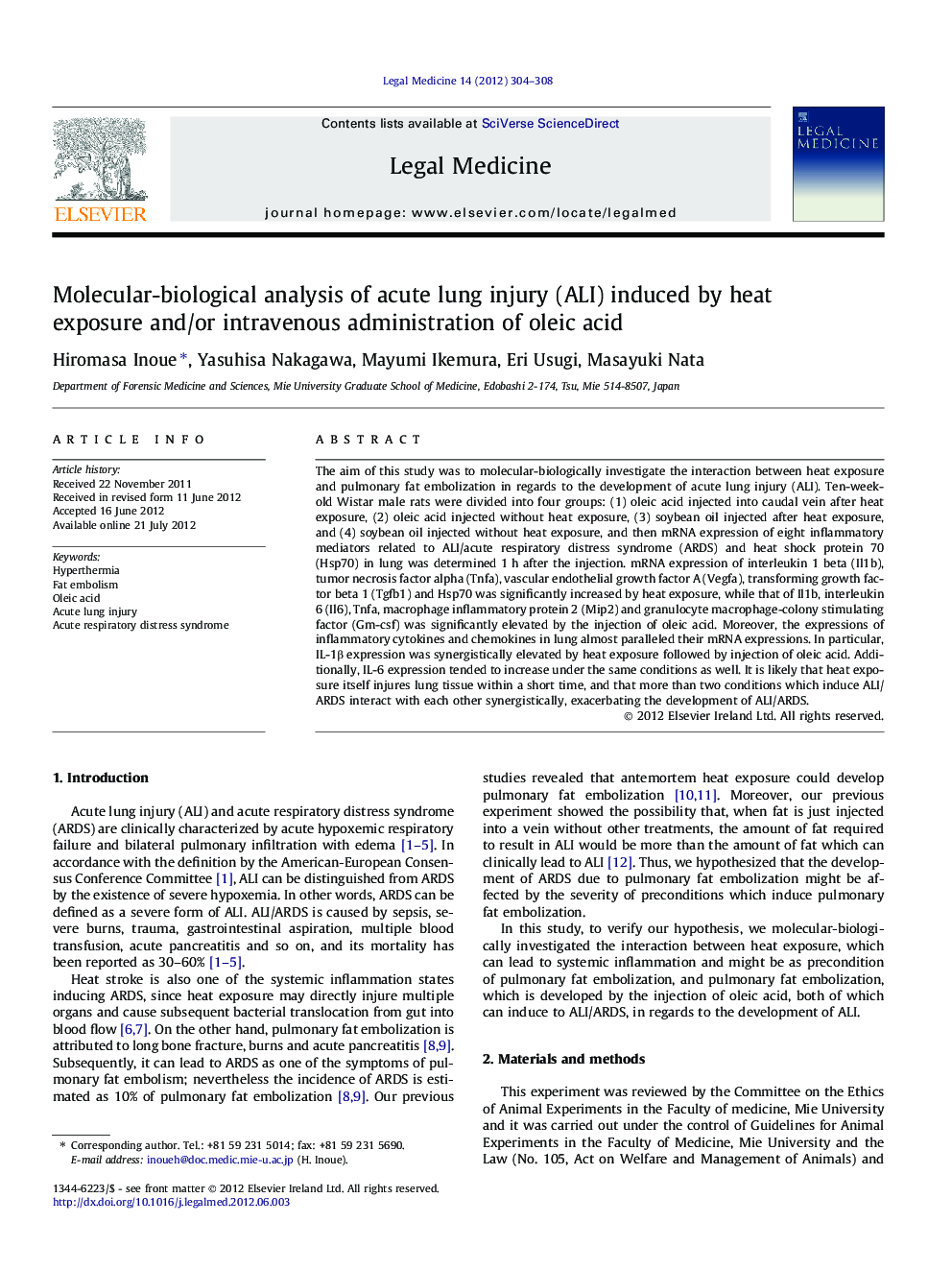| Article ID | Journal | Published Year | Pages | File Type |
|---|---|---|---|---|
| 103942 | Legal Medicine | 2012 | 5 Pages |
The aim of this study was to molecular-biologically investigate the interaction between heat exposure and pulmonary fat embolization in regards to the development of acute lung injury (ALI). Ten-week-old Wistar male rats were divided into four groups: (1) oleic acid injected into caudal vein after heat exposure, (2) oleic acid injected without heat exposure, (3) soybean oil injected after heat exposure, and (4) soybean oil injected without heat exposure, and then mRNA expression of eight inflammatory mediators related to ALI/acute respiratory distress syndrome (ARDS) and heat shock protein 70 (Hsp70) in lung was determined 1 h after the injection. mRNA expression of interleukin 1 beta (Il1b), tumor necrosis factor alpha (Tnfa), vascular endothelial growth factor A (Vegfa), transforming growth factor beta 1 (Tgfb1) and Hsp70 was significantly increased by heat exposure, while that of Il1b, interleukin 6 (Il6), Tnfa, macrophage inflammatory protein 2 (Mip2) and granulocyte macrophage-colony stimulating factor (Gm-csf) was significantly elevated by the injection of oleic acid. Moreover, the expressions of inflammatory cytokines and chemokines in lung almost paralleled their mRNA expressions. In particular, IL-1β expression was synergistically elevated by heat exposure followed by injection of oleic acid. Additionally, IL-6 expression tended to increase under the same conditions as well. It is likely that heat exposure itself injures lung tissue within a short time, and that more than two conditions which induce ALI/ARDS interact with each other synergistically, exacerbating the development of ALI/ARDS.
